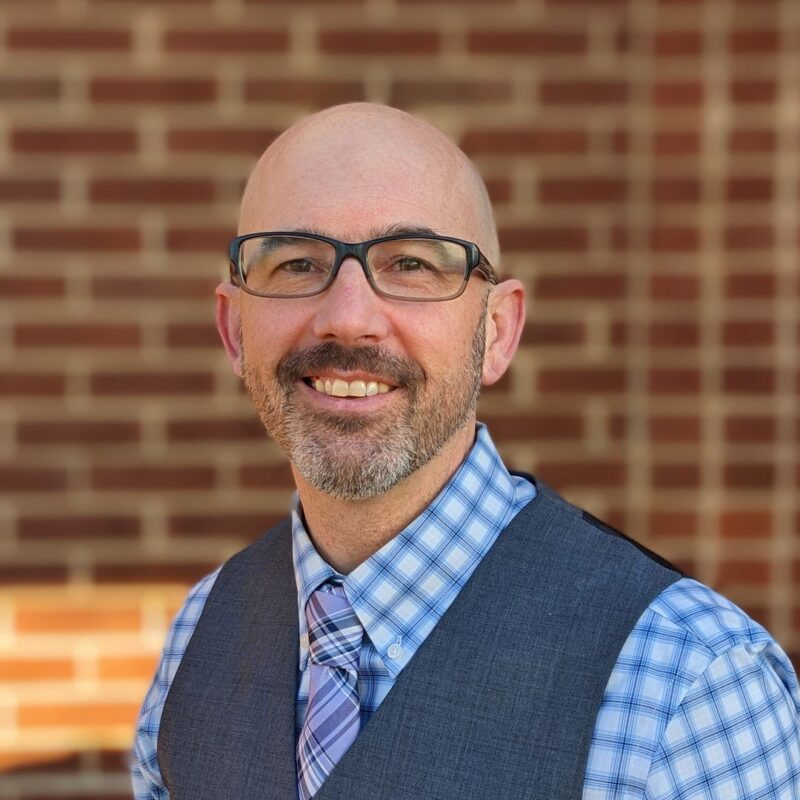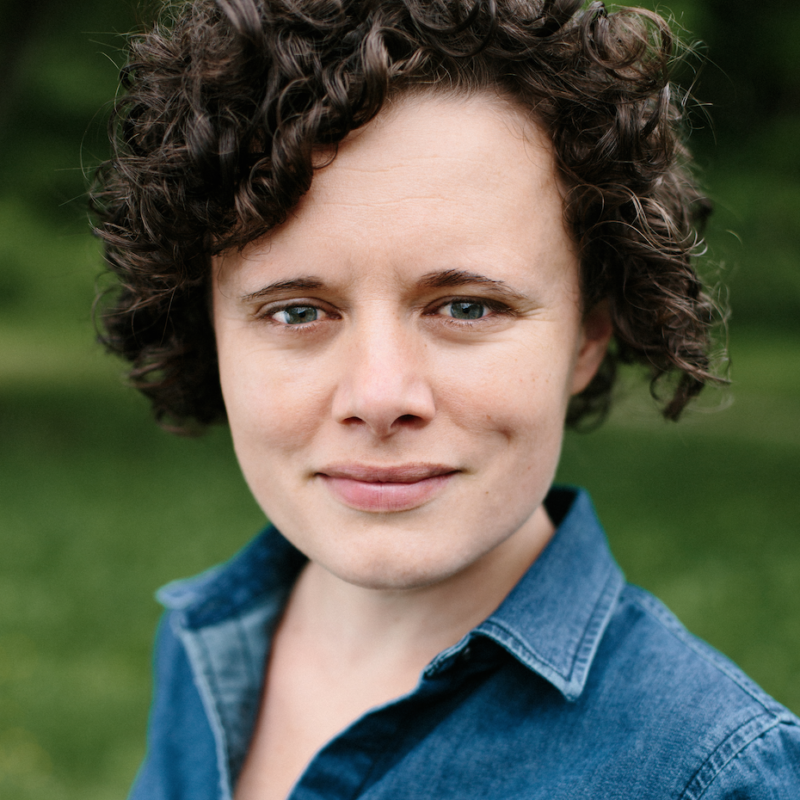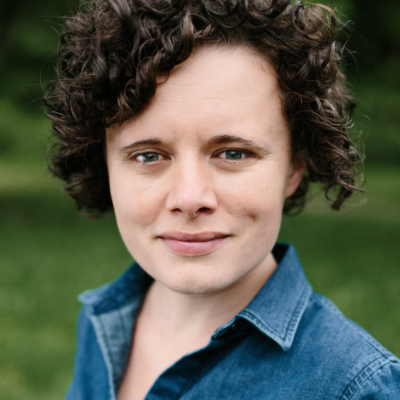|
|
Oars flanked the podium in the sterile, textbook-filled upper mezzanine of the UVA bookstore—a silly sight. In front of a crowd split between faculty and young MFAs, Jeb Levingood, editor of UVA graduate literary journal Meridian, took to the podium with a fictional and fanciful introduction about how the local novelist John Casey was born a destitute Mexican woman. Casey, legs crossed lightly in the front row, smiled. And when it was his turn to speak he was ready with a “Muchas gracias, Jeb Livingood,” which he followed with a laugh and a few Spanish phrases. Bearded, bespectacled and spry from a lifetime of endurance exercise, Casey cracked open his new book Compass Rose, the long-awaited follow up to the National Book Award-winning Spartina, and said, “For the next 38 minutes, I become a woman.”
|
Casey’s ship comes in: Some 20 years after he accepted the National Book Award for Spartina, above, Casey earned rapturous reviews for its follow-up, Compass Rose, from which he gave a recent reading at UVA Bookstore. |
Casey illustrated the words of Mary Scanlon, one of the women at the center of Casey’s Rhode Island trilogy, by raising a short, stout pipe in his left hand. Everyone else was the tall, lean pipe in his right hand.
That night he was a woman. But John Casey can be a lot of things: For almost 30 years he’s been a writing teacher at UVA; he’s been a soldier, a lawyer, a father and a godfather, a runner and a rower. But the most charged aspects of his life’s loose ends have connected into the craft that threads his life: writing. And nowhere are all these loose ends more elegantly tied than in the Rhode Island trilogy, of which Compass Rose is the second installment.
Casey’s compass
You get the sense in talking to him that Casey, 72, is the kind of guy who is willing to try anything once. “One of the problems of feeling slightly younger than your chronological age is that you’re bound to do something dumb,” he says.
One recent stupid act involved a for-the-hell-of-it canoe trip from Northeastern Pennsylvania to the Chesapeake Bay, undertaken with a brother-in-law two decades Casey’s junior. They were warned about a particularly dicey spot just ahead in the river, called Foul Rift, known for unceremoniously tossing canoeists into the drink. They forged on nonetheless.
Foul Rift is one of the most treacherous passes on the mostly untreacherous waters of the Delaware River. But for Casey it is the kind of phrase he holds onto. The first page of Spartina is riddled with words that take a moment to register—like “wharf” and “skiff”—and words you may not know—“oarlock,” “transom.” Writers like Hemingway, McCarthy and Casey use these little words to make reading a short sentence feel almost precarious. It’s what makes Casey’s writing good.
But what makes Casey’s writing great is his ability to situate character within community. In his relentless pursuit to provide for his wife and two sons, the trilogy’s centerpiece, Dick Pierce, tries to build by hand a fishing boat that would reverse his fortune. When those plans stall, he runs drugs and, losing sight of his goals, ultimately fathers an illegitimate child. Spartina’s climax comes when Pierce takes the ship to sea to protect it from an incoming hurricane. It’s riveting; the New York Times Book Review called Spartina, “possibly the best American novel about going fishing since The Old Man and the Sea, maybe even Moby-Dick.”
With praise like that, you’d think Casey would write another one about fishing. “I thought, I’m going to write the epilogue to Spartina, because May [Dick Pierce’s fictional wife] hasn’t really had the chance to speak up,” says Casey. “So I started again, and the epilogue turned into a very long epilogue. And then it turned into a novel.” And so Compass Rose begins with Pierce out to sea and out of frame. We see the women in Pierce’s life—his wife and his mistress—who are watching Pierce’s sons play baseball. It sometimes feels like nothing is happening. But before you know it, Casey unflinchingly dethrones the manly hero: Pierce’s labor of love, the Spartina, which he built with his two hands, is unceremoniously destroyed as his life on land becomes increasingly complicated.
No man is an island, especially when he’s in a sea of women. Of Compass Rose, The Seattle Times gushed, “Casey can write the thoughts, feelings, emotions, hopes and dreams of women, be they wives, mothers, daughters or lovers, better than anyone since Reynolds Price wrote Kate Vaiden.” In a positive review, Entertainment Weekly noted, “Dick has faded, but Casey has brought the women in his life to the forefront: his wife, May; his girlfriend, Elsie; and especially his prickly teenage daughter, Rose.” The Los Angeles Times weighed in, “He is also a gifted creator of characters; most of the main female characters, [Dick’s mistress] Elsie Buttrick in particular, create vivid impressions that linger for some time.”
Naturally, Casey is often asked how he understands women so well. “The women in my life laugh when they hear that question,” says the twice-married father of four daughters. And although Dick is the main character in Spartina, it was the women at the fore of Compass Rose that Casey invented first. “I got to the end of a cycle, which were all women living around these salt ponds that I created. I thought I would just write one about a guy with his boat, and it’s going to be very short. Somewhere in the story of Dick, his mistress Elsie just showed up. And I thought she was great; she ends up being the hero.”
Gender aside, the story straddles plenty of barriers. Rich, highly educated characters visit Sawtooth Point for the ambience; the Pierces stay for the fish. Tom and Charlie are torn between their father’s livelihood and a chance to go to college; at the center of all the intersecting lines is Rose, the handful of a teenager who bemoans life in the place others find so quaint.
No way in hell
|
The complete Casey Casey is known for taking his sweet time sending books to press, a testament to his thoughtfulness rather than laziness. The upside for beginners is that his catalogue is manageable enough to fit in a handy-dandy sidebar. Curious where to start? Pick a book and dig in. An American Romance (Atheneum, 1977): Craft drives Casey’s acclaimed debut novel, set in the middle-of-nowhere Iowa that he got to know while studying there. The story traces the travels and trials of two lovers, Max and Anya, who share an often Freudian journey to the outer limits of their sexual and emotional energies. Testimony and Demeanor (Knopf, 1979): In these four (pretty long) short stories, Casey casts a panoptic emotional eye on four men with lives similar to his own, or what his might have been, including a lawyer and a soldier. The title story, about a New England lawyer who finds himself isolated in New York, was published in 1971 in The New Yorker, an early coup for Casey. Spartina (Knopf, 1989): This socially complex tale of a man and a boat won the 1989 National Book Award. The first book in the Rhode Island trilogy introduces a true-to-life cast of characters and protagonist Dick Pierce, who struggles to build the fishing boat that would allow him to provide for his family—which he nearly destroys by fathering an illegitimate child with a headstrong local game warden, Elsie Buttrick. Supper at the Black Pearl (Lord John Press, 1995): When we first encounter Elsie Buttrick in this minor novella, an addendum to the Rhode Island trilogy, she is 31, “still single” and struggling to navigate a host of family relationships, including one with her sister Sally. The Half-Life of Happiness (Vintage, 1999): Casey set this novel—which he says has “about two-and-a-half too many deaths to be a comedy”—in Charlottesville. After a lawyer loses a friend to suicide and his tippling wife has an affair with another woman, he launches an ultimately embarrassing congressional campaign. Meanwhile, two young daughters observe with chorus-like precision. Compass Rose (Knopf, 2010): Compass Rose begins with Dick Pierce spending half his time at sea on the Spartina. Meanwhile his wife May and former mistress Elsie Buttrick spend more time together than makes either of them comfortable. But it’s all in the name of raising Pierce and Buttrick’s child Rose, who reaches her teens just as Sawtooth Point, the trilogy’s evocative locale, faces development.—A.C.
|
If it seems like the joining of all of these perspectives is a feat, it’s helpful to consider Casey’s background. His father, Joseph E. Casey, represented Massachusetts’ third district for four terms in the House of Representatives before losing a bid for the U.S. Senate. His mother, Constance Dudley Casey was descended from Anne Dudley Bradstreet, considered to be America’s earliest poet, and the first Puritan ever to be put in stocks for public drunkenness.
The lineage suited John well. He was a chubby young man with a pronounced stutter, and distinguished himself as a exceptionally smart but freewheeling student at boarding school in Switzerland—where he was sent to learn French, the language of diplomacy—and later at the elite St. Alban’s School, in Washington, D.C. There he was said to have set a record for demerits, “mainly for being a wise-ass.”
There was pressure, growing up in Washington, D.C., to enter a life of public service. All of his father’s friends were lawyers, judges or reporters, which gave Casey what he calls “an excalibur complex”: “You have to pull the sword from the stone. I felt that for a long time, and it’s only slightly preferable to feeling like you can only be a man if you can go to Wall Street and make a million.” Those thoughts bled into his attitude about writing. “It was something I just loved, but there was never any way in hell that it would be a career,” he says.
He says the rest of life can be plotted along a sine wave, oscillating between being a good boy and a bad boy. It was the good boy who got into Harvard and fell in love with theater, discovering that acting mitigated his stutter; the bad boy who was temporarily expelled. (“They had some very odd rules about having girls in your room,” says Casey.) It was the good boy who later gained admittance to Harvard Law, and the bad boy who skipped clerkships in the summer to work on a novel.
Casey was emboldened to play by his own rules after taking a class with the celebrated short story writer Peter Taylor. Casey recalled the conversation with Taylor that would change his life in a recent issue of Narrative Magazine:
“I submitted a novel I’d written during summers when I should have been clerking at a law firm. Our first conference was very short. Peter said, ‘If I’d known from the beginning that this was a comic novel, I believe I would have laughed a good deal.’ And then—‘You should write some short stories.’
“After a month or so of writing every weekend from Friday noon until Sunday evening I turned in two stories. I showed up for our second conference in my army uniform. I said, ‘I’m sorry. I forgot I had a reserve meeting. I can’t stay long.’
“Peter said, ‘This won’t take long.’ I sat down. Peter said, ‘Don’t be a lawyer. You’re a writer.’ I was speechless.”
That night, Taylor showed up to an election year party that Casey’s father hosted every four years in Boston for old political pals, and ended up in conversation with Casey’s parents. When they found that Taylor taught writing, they asked if writing can be taught. Taylor responded, “I don’t know, but you can encourage it. Why, just today I told a young man not to be a lawyer, and to be a writer.”
And at that moment the young John walked in the door and Taylor pointed at John. “And there he is now.”
Pulling from the stack
I met Casey Downtown the week after his UVA reading. Autumn had finally fallen and it was cold. He wore a weathered olive military coat, pants whose pleats had been beaten out of them and a strange, if well-made, multicolored knit cap that revealed what I took as a logical hat philosophy: Hats keep heads warm; this hat is warm; I will wear this hat, however it looks. He did not look like a lawyer.
A pronounced stutter undercuts a steady stream of conversation. But talk is packed with anecdotes that point to a life plotted along an improbable path, much of it spent on small boats, and all of it richly lived. For reasons that only later become apparent, he pivots between talk of his mentor Peter Taylor and mentee Breece D’J Pancake (both Pulitzer Prize winners), and a tale about besting a judo instructor after studying the moves in an instructional booklet.
We sat down for coffee, and Casey ordered a chai tea. “I’ve never had this before,” he remarked at first sip. “This is good,” he said, with a wide-eyed relish.
During that 20 years between Spartina and Compass Rose, the Rhode Island trilogy was a fat stack of pages, legal pad upon legal pad inked in longhand with ballpoint pen. “It was this high,” Casey says, reaching his hand up to his shoulder. He worked on the many rewrites in a shack he keeps behind the house on Rugby Road he shares with his wife, the artist Rosamond Casey, where they raised two daughters.
“It’s very small, and it has a wood stove—all I need,” he says of the shack. On most mornings, after a big breakfast, Casey goes out back, lights a pipe filled with tobacco from the Cville Smoke Shop until it burns out, and writes until the flow stops. And then he goes to the gym.
The story of how the Rhode Island trilogy came to be is itself worth telling. If Casey’s parents were flummoxed by the idea of a son who forsook a degree from Harvard Law to be a writer, they must’ve been doubly bewildered when, after passing the bar exam in Washington D.C., Casey opted instead to pursue a writing fellowship at the University of Iowa. By age 30, Casey, then married to writer Jane Barnes, took the earnings from his earliest published work and a loan from his father-in-law, and purchased a small island off the coast of Rhode Island in Narraganset Bay.
“The life I lived had lots of physical things in it, between farm work, fishing, and going back and forth from town to get the mail. It made life quite intense, and that imprinted itself. I had to pay attention to the state of the tide, and change of the wind. It made those years more intense than almost any others in my life. I felt in my prime.” And with few distractions, there were hours left to reading and writing. Everyday life took the shape of casual adventure. But with a young family, life there lasted only four years. (“We sold the island for about $80,000 to a retired RAF officer who had built his own gyroplane, was married to an ex-nun and had a huge German Shepherd named Satan. I rather liked the idea of them.”)
Casey’s first two books—a novel set in Iowa called An American Romance, and a quartet of stories called Testimony and Demeanor—were published after he moved to Charlottesville in the ’70s to join the UVA faculty. But the high of these triumphs at the end of the decade were undercut by three tragedies. “I had a terrible year of my life between 1979 and 1980. Every time the phone rang it was terrible news,” says Casey. His father died and Casey split with Barnes.
But the tragedy that had the greatest impact was the suicide of an intense and brooding young writer with a biting sense of humor from West Virginia. To that young writer, Breece D’J Pancake, Casey grew to be not only a mentor and godfather, but after Pancake’s 1979 suicide, the man charged with “taking care” of Pancake’s stories—which became a task that almost eclipsed his own work after Pancake was posthumously awarded the Pulitzer Prize.
|
John Casey doing a reading at New Dominion Books. |
Casey retreated to New England with writer’s block and advice from a friend, who gave Casey a trick for beating writer’s block: Think of a fairy tale that you don’t know entirely. Rewrite it.
The stories that started coming out were thoughtful explorations of women characters that surrounded the salt ponds in Rhode Island that Casey grew to love while living there. (One of these tales was expanded into a play called Snow White, which Casey staged at Live Arts.) The time that Casey spent hanging out with fishermen, and the people of Rhode Island who would become his characters, started to bubble up in his prose.
“Every new place I go to, I write about the place where I used to be. Place is one of the things that I try to get right, and it seems that works better looking back.”
A funny book
Life in Charlottesville has afforded him the luxury of continuing one of his lifelong passions: Rowing. He serves as faculty advisor to UVA’s rowing teams, where his duties have ranged from sitting in when a boat is a racer short, to taking one three-day weekend to administer tests to rowers whose races conflicted with exams. When Casey moved to Charlottesville in 1972 to join Taylor on the faculty at UVA, life in Charlottesville was an afterthought. “When I was first here, I worked so hard that I didn’t notice how much fun there was to be had. I came back after a trip, and I looked around and I thought, I guess if I had to pick a place, this would be a good place to pick. Which was good, because I’d already picked this one.”
And although he is a committed athlete, he is not an overly competitive one. “There’s some things that I do, like cross-country skiing, where you have to pay attention to every stroke, and that’s what you concentrate on,” says Casey. “An hour of rowing or cross-country skiing is like a week’s vacation. The pain is kind of by-the-way.”
“It really is what Aristotle says tragedy is about. It’s catharsis. You use everything within you, which is a satisfying feeling.”
Casey has been busy channeling these insights into a new book, a collection of sports writing through the years, that is due at the end of the month. There will be pieces on running, rowing, judo and cross-country skiing. He and his editor have been talking about how to market it. Casey thinks it’s going to be kind of a funny book.
His editor has another niche in mind: Aging men’s health.








